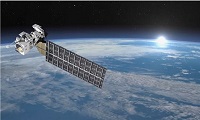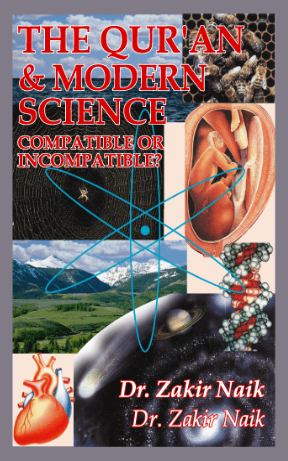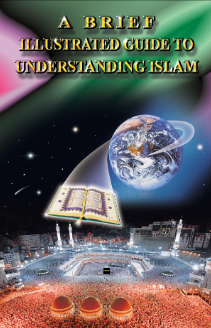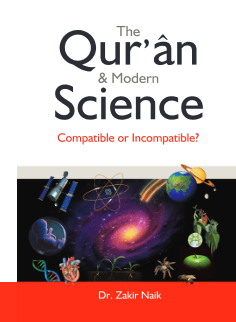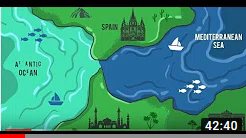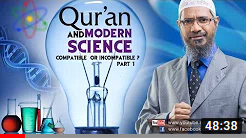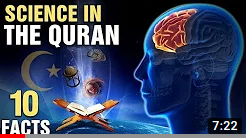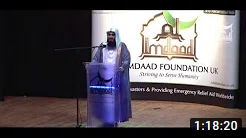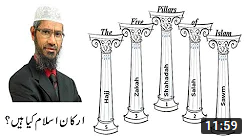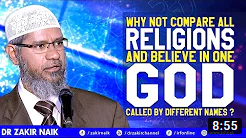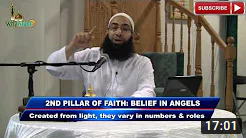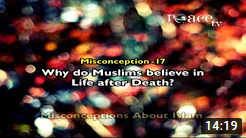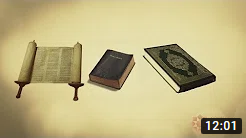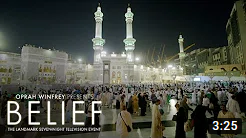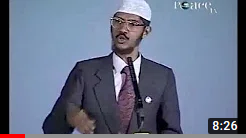Read below book or download eBook by Dr. Maurice Bucaille (Edited by Dr. A. A. Bilal Philips)
eBook:
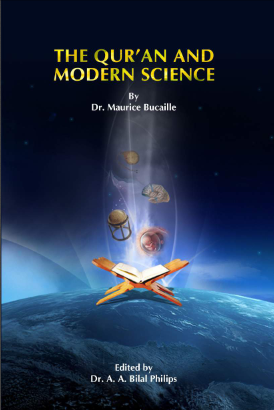
The Quran and Modern Science
Read The Quran and Modern Science
By: Dr Mourise Bucaile
Edited By: Dr. A. A. Bilal Philips
EDITOR’S FOREWORD
This booklet by Dr. Maurice Bucaille has been in circulation for the past nineteen years and has been a very effective tool in presenting Islam to non-Muslims as well as introducing Muslims to aspects of the scientific miracle of the Qur’an. It is based on a transcription of a lecture given by Dr. Bucaille in French.
In this reprint, I decided to improve its presentation by simplifying the language and editing the text from an oral format to a pamphlet format. There were also passing references made by the author to material in his book, The Bible, the Qur’an and Science, which needed explanation. I took the liberty of including explanatory portions from his book where more detail was necessary. A few footnotes were also added for clarity and a hadeeth which the author mentioned was replaced due to its inauthenticity. There were also some corrections made to the historical material on the compilation of the Qur’an.
It is my hope that these slight improvements will make this excellent work even more effective in presenting the final revelation of God to mankind.
Dr. Abu Ameenah Bilal Philips
Director/Islamic Information Center Dubai
U.A.E.
May, 1995
INTRODUCTION
On the 9th of November, 1976, an unusual lecture was given at the French Academy of Medicine. Its title was “Physiological and Embryological data in the Qur’an”. I presented the study based on the existence of certain statements concerning physiology and reproduction in the Qur’an. My reason for presenting this lecture was because it is impossible to explain how a text produced in the seventh century could have contained ideas that have only been discovered in modern times.
For the first time, I spoke to members of a learned medical society on subjects whose basic concepts they all knew well, but I could, just as easily, have pointed out statements of a scientific nature contained in the Qur’an and other subjects to specialists from other disciplines. Astronomers, zoologists, geologists and specialists in the history of the earth would all have been struck, just as forcibly as medical doctors, by the presence in the Qur’an of highly accurate reflections on natural phenomena. These reflections are particularly astonishing when we consider the history of science, and can only lead us to the conclusion that they are a challenge to human explanation.
There is no human work in existence that contains statements as far beyond the level of knowledge of its time as the Qur’an. Scientific opinions comparable to those in the Qur’an are the result of modern knowledge. In the commentaries to translations of the Qur’an that have appeared in European languages, I have only been able to find scattered and vague references to them. Nor do commentators writing in Arabic provide a complete study of the aspects of the Qur’an that deal with scientific matters. This is why the idea of a comprehensive study of the problem appealed to me.
In addition to this, a comparative study of similar data contained in the Bible (Old Testament and Gospels) seemed desirable. Thus, a research project was developed from the comparison of certain passages in the Holy Scriptures of each monotheistic religion with modern scientific knowledge. The project resulted in the publication of a book entitled, The Bible, the Qur’an and Science. The first French edition appeared in May 1976. English and Arabic editions have since been published.
RELIGION AND SCIENCE
There is, perhaps, no better illustration of the close links between Islam and science than the Prophet Muhammad’s often-quoted statements:
“Seeking knowledge is compulsory on every Muslim.”
“wisdom is the lost property of the believer.”
“whoever follows a path seeking knowledge, Allah will make his path to paradise easy.”
These statements and many others are veritable invitations to humanity to enrich their knowledge from all sources. It comes as no surprise, therefore, to learn that in Islam religion and science have always been considered as twin sisters and that today, at a time when science has taken such great strides, they still continue to be associated. Nor is it a surprise to learn that certain scientific data are used for the better understanding of the Qur’anic text. What is more, in a century where, for many people, scientific truth has dealt a deathblow to religious belief, it is precisely the discoveries of science that, in an objective examination of the Islamic scripture, have highlighted the supernatural nature of revelation and the authenticity of the religion which it taught.
When all is said and done, scientific knowledge seems, in spite of what many people may say or think, to be highly conducive to reflection on the existence of God. Once we begin to ask ourselves, in an unbiased or unprejudiced way, about the metaphysical lessons to be derived from some of today’s knowledge, (for example our evolving knowledge of the smallest components of matter or the questions surrounding the origin of life within inanimate matter), we indeed discover many reasons for thinking about God. When we think about the remarkable organization presiding over the birth and maintenance of life, it becomes clear that the likelihood of it being the result of chance lessens quite considerably.
As our knowledge of science in the various fields expands, certain concepts must seem increasingly unacceptable. For example, the idea enthusiastically expressed by the recent French winner of the Nobel prize for medicine, that living matter was self-created from simple chemical elements due to chance circumstances. Then from this point it is claimed that living organisms evolved, leading to the remarkably complex being called man. To me, it would seem that the scientific advancements made in understandithe fantastic complexity of higher beings provides stronger arguments in favor of the opposite theory: that the existence of an extraordinarily methodical organization presiding over the remarkable arrangement of the phenomena of life necessitates the existence of a Creator.
In many parts of the Book, the Qur’an, encourages this kind of general reflection but also contains infinitely more precise data which are directly related to facts discovered by modern science. It is precisely this data which exercise a magnetic attraction for today’s scientists.
The Qur’an And Science
For many centuries, humankind was unable to study certain data contained in the verses of the Qur’an because they did not possess sufficient scientific means. It is only today that numerous verses of the Qur’an dealing with natural phenomena have become comprehensible. A reading of old commentaries on the Qur’an, however knowledgeable their authors may have been in their day, bears solemn witness to a total inability to grasp the depth of meaning in such verses. I could even go so far as to say that, in the 20th century, with its compartmentalization of ever-increasing knowledge, it is still not easy for the average scientist to understand everything he reads in the Qur’an on such subjects, without having recourse to specialized research. This means that to understand all such verses of the Qur’an, one is nowadays required to have an absolutely encyclopedic knowledge embracing many scientific disciplines.
I should like to stress, that I use the word science to mean knowledge which has been soundly established. It does not include the theories which, for a time, help to explain a phenomenon or a series of phenomena, only to be abandoned later on in favor of other explanations. These newer explanations have become more plausible thanks to scientific progress. I only intend to deal with comparisons between statements in the Qur’an and scientific knowledge which are not likely to be subject to further discussion. Wherever I introduce scientific facts which are not yet 100% established, I will make it quite clear.
There are also some very rare examples of statements in the Qur’an which have not, as yet, been confirmed by modern science. I shall refer to these by pointing out that all the evidence available today leads scientists to regard them as being highly probable. An example of this is the statement in the Qur’an that life has an aquatic origin ( “And I created every living thing out of water” Qur’an, 21:30 ).
These scientific considerations should not, however, make us forget that the Qur’an remains a religious book par excellence and that it cannot be expected to have a scientific purpose per se. In the Qur’an, whenever humans are invited to reflect upon the wonders of creation and the numerous natural phenomena, they can easily see that the obvious intention is to stress Divine Omnipotence. The fact that, in these reflections, we can find allusions to data connected with scientific knowledge is surely another of God’s gifts whose value must shine out in an age where scientifically based atheism seeks to gain control of society at the expense of the belief in God. But the Qur’an does not need unusual characteristics like this to make its supernatural nature felt. Scientific statements such as these are only one specific aspect of the Islamic revelation which the Bible does not share.
Throughout my research I have constantly tried to remain totally objective. I believe I have succeeded in approaching the study of the Qur’an with the same objectivity that a doctor has when opening a file on a patient. In other words, only by carefully analyzing all the symptoms can one arrive at an accurate diagnosis. I must admit that it was certainly not faith in Islam that first guided my steps, but simply a desire to search for the truth. This is how I see it today. It was mainly the facts which, by the time I had finished my study, led me to see the Qur’an as the divinely-revealed text it really is.
AUTHENTICITY OF QUR’AN
Before getting to the essence of the subject, there is a very important point which must be considered: the authenticity of the Qur’anic text.
It is known that the text of the Qur’an was both recited from memory, during the time it was revealed, by the Prophet and the believers who surrounded him, and written down by designated scribes among his followers. This process lasted for roughly twenty-three years during which many unofficial copies were made. An official copy was made within one year after the Prophet’s death at the instruction of Caliph Abu Bakr.
Here we must note a highly important point. The present text of the Qur’an benefited in its original preparation from the advantage of having its authenticity cross-checked by the text recited from memory as well as the unofficial written texts. The memorized text was of paramount importance at a time when not everyone could read and write, but everybody could memorize. Moreover, the need for a written record was included in the text of the Qur’an itself. The first five verses of chapter al-‘Alaq, which happen to constitute the first revelation made to the Prophet (S), express this quite clearly:
“Read: In the name of your Lord who created. Who created man from a clinging entity. Read! Your Lord is the most Noble, Who taught by the pen. Who taught man what he did not know.” Qur’an, 96:1-5
These are surely words in “praise of the pen as a means of human knowledge”, to use Professor Hamidullah’s expression.
Then came the Caliphate of ‘Uthman (which lasted from the twelfth to the twenty-fourth year following Muhammad’s death). Within the first two years of Caliph ‘Uthman’s rule, seven official copies were reproduced from the official text and distributed throughout a large area of the world which had already come under Islamic rule. All unofficial copies existing at that time were destroyed and all future copies were made from the official seven copies.
In my book, The Bible, the Qur’an and Science, I have quoted passages from the Qur’an which came from the period prior to the Hijrah (the Prophet’s emigration from Makkah to Madeenah in the year 622) and which allude to the writing of the Qur’an before the Prophet’s departure from Makkah.
There were, moreover, many witnesses to the immediate transcription of the Qur’anic revelation.
Professor Jacques Berque has told me of the great importance he attaches to it in comparison with the long gap separating the writing down of the Judeo-Christian revelation from the facts and events which it relates. Let us not forget that today we also have a number of manuscripts of the first written versions of the Qur’an which were from a time period very close to the time of revelation.
I shall also mention another fact of great importance. We shall examine statements in the Qur’an which today appear to merely record scientific truth, but of which men in former times were only able to grasp the apparent meaning. In some cases, these statements were totally incomprehensible. It is impossible to imagine that, if there were any alterations to the texts, these obscure passages scattered throughout the text of the Qur’an, were all able to escape human manipulation. The slightest alteration to the text would have automatically destroyed the remarkable coherence which is characteristic to them. Change in any text would have prevented us from establishing their total conformity with modern knowledge. The presence of these statements spread throughout the Qur’an looks (to the impartial observer ) like an obvious hallmark of its authenticity.
The Qur’an is a revelation made known to humans in the course of twenty-three years. It spanned two periods of almost equal length on either side of the Hijrah. In view of this, it was natural for reflections having a scientific aspect to be scattered throughout the Book. In a study, such as the one we have made, we had to regroup the verses according to subject matter, collecting them chapter by chapter.
How should they be classified? I could not find any indications in the Qur’an suggesting any particular classification, so I decided present them according to my own personal one.
It would seem to me, that the first subject to deal with is Creation. Here it is possible to compare the verses referring to this topic with the general ideas prevalent today on the formation of the Universe. Next, I divided up verses under the following general headings: Astronomy, the Earth, the Animal and Vegetable Kingdoms, Humans, and Human Reproduction in particular. Furthermore, I thought it useful to make a comparison between Qur’anic and Biblical narrations on the same topics from the point of view of modern knowledge. This has been done in the cases of Creation, the Flood and the Exodus. The reason that these topics were chosen is that knowledge acquired today can be used in the interpretation of the texts.
CREATION OF THE UNIVERSE
From an examination of creation as described in the Qur’an, an extremely important general concept emerges: The Qur’anic narration is quite different from the Biblical narration. This idea contradicts the parallels which are often wrongly drawn by Western authors to emphasize the resemblance between the two texts. To stress only the similarities, while silently ignoring the obvious dissimilarities, is to distort reality. There is, perhaps, a reason for this.
When talking about creation, there is a strong tendency in the West to claim that Muhammad copied the general outlines mentioned in the Qur’an from the Bible. Certainly it is possible to compare the six days of creation as described in the Bible, plus an extra day for rest on God’s Sabbath, with this verse from chapter al-A‘raaf.
“Your Lord is God who created the heavens and the earth in six days.” Qur’an, 7:54
However, it must be pointed out that modern commentators stress the interpretation of the Arabic word ayyaam, (one translation of which is ‘days’), as meaning ‘long periods’ or ‘ages’ rather than periods of twenty-four hours.
What appears to be of fundamental importance to me is that, in contrast to the narration contained in the Bible, the Qur’an does not lay down a sequence for creation of the earth and heavens. It refers both to the heavens before the earth and the earth before the heavens, when it talks of creation in general, as in this verse of chapter Taa Haa:
“(God) who created the earth and heavens above.” Qur’an, 20:4
In fact, the notion derived from the Qur’an is one of a parallelism in the celestial and terrestrial evolutions. There are also basic pieces of information concerning the existence of an initial gaseous mass ( dukhaan ) which are unique to the Qur’an. As well as descriptions of the elements which, although at first were fused together ( ratq ), they subsequently became separated (fatq). These ideas are expressed in chapters Fussilat and al-Anbiyaa:
“God then rose turning towards the heaven when it was smoke” Qur’an, 41:11
“Do the disbelievers not see that the heavens and the earth were joined together, then I split them apart?” Qur’an, 21:30
According to modern science, the separation process resulted in the formation of multiple worlds, a concept which appears dozens of times in the Qur’an. For example, look at the first chapter of the Qur’an, al-Faatihah:( “Praise be to God, the Lord of the Worlds.” Qur’an, 1:2 ). These Qur’anic references are a11 in perfect agreement with modern ideas on the existence of primary nebula (galactic dust), followed by the separation of the elements which resulted in the formation of galaxies and then stars from which the planets were born. Reference is also made in the Qur’an to an intermediary creation between the heavens and the earth, as seen in chapter al-Furqaan:
“God is the one who created the heavens, the earth and what is between them…” Qur’an, 25:59
It would seem that this intermediary creation corresponds to the modern discovery of bridges of matter which are present outside organized astronomical systems.
This brief survey of Qur’anic references to creation clearly shows us how modern scientific data and statements in the Qur’an consistently agree on a large number of points. In contrast, the successive phases of creation mentioned in the Biblical text are totally unacceptable. For example, in Genesis 1:9-19 the creation of the earth (on the 3rd day) is placed before that of the heavens (on the 4th day). It is a well known fact that our planet came from its own star, the sun. In such circumstances, how could anyone claim that Muhammad, the supposed author of the Qur’an, drew his inspiration from the Bible. Such a claim would mean that, of his own accord, he corrected the Biblical text to arrive at the correct concept concerning the formation of the Universe. Yet the correct concept was reached by scientists many centuries after his death.
ASTRONOMY
Whenever I describe to Westerners the details the Qur’an contains on certain points of astronomy, it is common for someone to reply that there is nothing unusual in this since the Arabs made important discoveries in the field of astronomy long before the Europeans. But, this is a mistaken idea resulting from an ignorance of history. In the first place, science developed in the Arab World at a considerable time after the Qur’anic revelation had occurred. Secondly, the scientific knowledge prevalent at the highpoint of Islamic civilization would have made it impossible for any human being to have written statements on the heavens comparable to those in the Qur’an. The material on this subject is so vast that I can only provide a brief outline of it here.
The Sun and Moon.
Whereas the Bible talks of the sun and the moon as two lights differing only in size, the Qur’an distinguishes between them by the use of different terms: light (noor) for the moon, and lamp (siraaj) for the sun.
“Did you see how Allah created seven heavens, one above the other, and made in them the moon a light and the sun a lamp?” Qur’an, 71: 15-16
The moon is an inert body which reflects light, whereas the sun is a celestial body in a state of permanent combustion producing both light and heat.
Stars and Planets
The word ‘star’ (najm) in the Qur’an ( 86:3 ) is accompanied by the adjective thaaqib which indicates that it burns and consumes itself as it pierces through the shadows of the night. It was much later discovered that stars are heavenly bodies producing their own light like the sun.
In the Qur’an, a different word, kawkab, is used to refer to the planets which are celestial bodies that reflect light and do not produce their own light like the sun.
“We have adorned the lowest heaven with ornaments, the planets.” Qur’an, 37:6
Orbits
Today, the laws governing the celestial systems are well known. Galaxies are balanced by the position of stars and planets in well-defined orbits, as well as the interplay of gravitational forces produced by their masses and the speed of their movements. But is this not what the Qur’an describes in terms which have only become comprehensible in modern times. In chapter al-Ambiyaa we find:
“(God is) the one who created the night, the day, the sun and the moon. Each one is traveling in an orbit with its own motion.” Qur’an,21:33
The Arabic word which expresses this movement is the verb yasbahoon which implies the idea of motion produced by a moving body, whether it is the movement of one’s legs running on the ground, or the action of swimming in water. In the case of a celestial body, one is forced to translate it, according to its original meaning, as ‘to travel with its own motion.’
In my book, The Bible, The Qur’an and Science, I have given the precise scientific data corresponding to the motion of celestial bodies. They are well known for the moon, but less widely known for the sun.
The Day and Night
The Qur’anic description of the sequence of day and night would, in itself, be rather commonplace were it not for the fact that it is expressed in terms that are today highly appropriate. The Qur’an uses the verb kawwara in chapter az-Zumar to describe the way the night ‘winds’ or ‘coils’ itself around the day and the day around the night.
“He coils the night upon the day and the day upon the night.” Qur’an, 39:5
The original meaning of the verb kis to coil a turban around the head. This is a totally valid comparison; yet at the time the Qur’an was revealed, the astronomical data necessary to make this comparison were unknown. It is not until man landed on the moon and observed the earth spinning on its axis, that the dark half of the globe appeared to wind itself around the light and the light half appeared to wind itself around the dark.
The Solar Apex
The notion of a settled place for the sun is vividly described in chapter Yaa Seen of the Qur’an:
“The sun runs its coarse to a settled place That is the decree of the Almighty, the All Knowing.” Qur’an, 36:38
“Settled place” is the translation of the word mustaqarr which indicates an exact appointed place and time. Modern astronomy confirms that the solar system is indeed moving in space at a rate of 12 miles per second towards a point situated in the constellation of Hercules ( alpha lyrae ) whose exact location has been precisely calculated. Astronomers have even give it a name, the solar apex.
Expansion of the Universe
Chapter ath-Thaariyaat of the Qur’an also seems to allude to one of the most imposing discoveries of modern science, the expansion of the Universe.
“I built the heaven with power and it is I, who am expanding it.” Qur’an,51:47
The expansion of the universe was first suggested by the general theory of relativity and is supported by the calculations of astrophysics. The regular movement of the galactic light towards the red section of the spectrum is explained by the distancing of one galaxy from another. Thus, the size of the universe appears to be progressively increasing.
Conquest of Space
Among the achievements of modern science is the “conquest” of space which has resulted in mans journey to the moon. The prediction of this event surely springs to mind when we read the chapter ar-Rahmaan in the Qur’an:
“O assembly of Jinns and men, if you can penetrate the regions of the heavens and the earth, then penetrate them! You will not penetrate them except with authority.”
Qur’an,55:33
Authority to travel in space can only come from the Creator of the laws which govern movement and space. The whole of this Qur’anic chapter invites humankind to recognize God’s beneficence.
GEOLOGY
Let us now return to earth to discover some of the many amazing statements contained in Qur’anic reflections about our own planet. They deal, not only with the physical phenomena observed here on earth, but also with details concerning the living organisms that inhabit it.
As in the case of everything we have discussed so far, we shall see that the Qur’an also expresses concepts in the field of geology that were way ahead of those current at the time of its revelation.
At this point, we must ask ourselves the following question: How could an uneducated man in the middle of the desert accurately tackle so many and such varied subjects at a time when mythology and superstition reigned supreme? How could he so skillfully avoid every belief that was proven to be totally inaccurate many centuries later?
Water Cycle
The verses dealing with the earthly systems are a case in point. I have quoted a large number of them in my book, The Bible, The Qur’an and Science, and have paid special attention to those that deal with the water cycle in nature. This is a topic which is well known today. Consequently, the verses in the Qur’an that refer to the water cycle seem to express ideas that are now totally self-evident. But if we consider the ideas prevalent at that time, they appear to be based more on myth and philosophical speculation than on observed fact, even though useful practical knowledge on soil irrigation was current at that period.
Let us examine, for example, the following verse in chapter az-Zumar:
“Have you not seen that Allah sent rain down from the sky and caused it to penetrate the ground and come forth as springs, then He caused crops of different colors to grow…” Qur’an,39:21
Such notions seem quite natural to us today, but we should not forget that, not so long ago, they were not prevalent. It was not until the sixteenth century, with Bernard Palissy, that we gained the first coherent description of the water cycle. Prior to this, people believed that the waters of the oceans, under the effect of winds, were thrust towards the interior of the continents. They then returned to the oceans via the great abyss, which, since Plato’s time was called the Tartarus .In the seventeenth century, great thinkers such as Descartes still believed in this myth. Even in the nineteenth century there were still those who believed in Aristotle’s theory that water was condensed in cool mountain caverns and formed underground lakes that fed springs. Today, we know that it is the infiltration of rain water into the ground that is responsible for this. If one compares the facts of modern hydrology with the data found in numerous verses of the Qur’an on this subject, one cannot fail to notice the remarkable degree of agreement between the two.
Mountains
In geology, modern science has recently discovered the phenomenon of folding which formed the mountain ranges. The earth’s crust is like a solid shell, while the deeper layers are hot and fluid, and thus inhospitable to any form of life. It has also been discovered that the stability of mountains is linked to the phenomenon of folding. The process of mountain formation by folding drove the earth’s crust down into the lower layers and provided foundations for the mountains.
Let us now compare modern ideas with one verse among many in the Qur’an that deals with this subject. It is taken from chapter an-Naba’:
“Have We not made the earth an expanse and the mountains stakes?”
Qur’an, 78:6-7
Stakes ( awtaad ), which are driven into the ground like those used to anchor a tent, are the deep foundations of geological folds.
Here, as in the case of all the other topics presented, the objective observer cannot fail to notice the absence of any contradiction to modern knowledge.
BIOLOGY
More than anything else, I was struck by statements in the Qur’an dealing with living things, both in the animal and vegetable kingdoms, especially with regard to reproduction. We should really devote much more time to this subject, but, due to the limited scope of this presentation, I can only give a few examples.
I must once again stress the fact that it is only in modern times that scientific progress has made the hidden meaning of some Qur’anic verses comprehensible to us. Numerous translations and commentaries on the Qur’an have been made by learned men who had no access to modern scientific knowledge. It is for this reason that scientists find some of their interpretations unacceptable.
There are also other verses whose obvious meanings are easily understood, but which conceal
scientific meanings which are startling, to say the least. This is the case of a verse in chapter al-Ambiyaa, a part of which has already been quoted:
“Do the unbelievers not realize that the heavens and the earth were joined together,
then I clove them asunder and I made every living thing out of water. Will they still not believe?” Qur’an, 21:30
This is a dramatic affirmation of the modern idea that the origin of life is aquatic.
Botany
Progress in botany at the time of Muhammad (S) was not advanced enough in any country for scientists to know that plants have both male and female parts. Nevertheless, we may read the following in the chapter Taa Haa:
“(God is the One who) sent down rain from the sky and with it brought forth a variety of plants in pairs.” Qur’an, 20:53
Today we know that fruit comes from plants that have sexual characteristics even when they come from unfertilized flowers, like bananas. In the chapter ar-Ra‘d we read the following:
“… and of all fruits (God) placed (on the earth) two pairs.” Qur’an, 13:3
Physiology
In the field of physiology, there is one verse which appears extremely significant to me. One thousand years before the discovery of the blood circulatory system, and roughly thirteen centuries before it was determined that the internal organs were nourished by the process of digestive , a verse in the Qur’an described the source of the constituents of milk, in conformity with scientific facts.
To understand this verse, it must first be known that chemical reactions occur between food and enzymes in the mouth, the stomach and the intestines releasing nutrients in molecular form which are then absorbed into the circulatory system through countless microscopic projections of the intestinal wall called villi. Blood in the circulatory system then transports the nutrients to all the organs of the body, among which are the milk-producing mammary glands.
This biological process must be basically understood, if we are to understand a verse in the Qur’an which has for many centuries given rise to commentaries that were totally incomprehensible.
Today it is not difficult to see why! This verse is taken from the chapter an-Nahl:
“Verily, in cattle there is a lesson for yon. I give you drink from their insides, coming from a conjunction between the digested contents ( of the intestines ) and the blood, milk pure and pleasant for those who drink it.” Qur’an, 16:66
The constituents of milk are secreted by the mammary glands which are nourished by the product of food digestion brought to them by the bloodstream. The initial event which sets the whole process in motion is the conjunction of the contents of the intestine and blood at the level of the intestinal wall itself.
This very precise concept is the result of the discoveries made in the chemistry and physiology of the digestive system over one thousand years after the time of Prophet Muhammad (S).
EMBRYOLOGY
There are a multitude of statements in the Qur’an on the subject of human reproduction which constitute a challenge to the embryologist seeking a human explanation for them. It was only after the birth of the basic sciences which contributed to our knowledge of biology and the invention of the microscope, that humans were able to understand the depth of those Qur’anic statements. It was impossible for a human being living in the early seventh century to have accurately expressed such ideas. There is nothing to indicate that people in the Middle-East and Arabia knew anything more about this subject than people living in Europe or anywhere else. Today, there are many Muslims, possessing a thorough knowledge of the Qur’an and natural sciences, who have recognized the amazing similarity between the verses of the Qur’an dealing with reproduction and modern scientific knowledge.
I shall always remember the comment of an eighteen-year-old Muslim, brought up in Saudi Arabia, commenting on a reference to human reproduction as described in the Qur’an. He pointed to the Qur’an and said, “This book provides us with all the essential information on the subject. When I was at school, my teachers used the Qur’an to explain how children were born. Your books on sex-education are a bit late on the scene!”
If I were to spend as long on all the details of reproduction contained in the Qur’an, as the subject merits, this pamphlet would become a book. The detailed linguistic and scientific explanations I have given in The Bible, The Qur’an and Science are sufficient for the person who does not speak Arabic nor know much about embryology to be able to understand the meaning of such verses in the light of modern science in more depth.
It is especially in the field of embryology that a comparison between the beliefs present at the time of the Qur’an’s revelation and modern scientific data, leaves us amazed at the degree of agreement between the Qur’an’s statements and modern scientific knowledge. Not to mention the total absence of any reference in the Qur’an to the mistaken ideas that were prevalent around the world at the time.
Fertilization
Let us now isolate, from all these verses, precise ideas concerning the complexity of the semen and the fact that an infinitely small quantity is required to ensure fertilization. In chapter al-Insaan the Qur’an states:
“Verily, I created humankind from a small quantity of mingled fluids.” Qur’an, 76:2
The Arabic word nutfah has been translated as “small quantity”. It comes from the verb meaning ‘to dribble, to trickle’ and is used to describe what remains in the bottom of a bucket which has been emptied. The verse correctly implies that fertilization is performed by only a very small volume of liquid.
On the other hand, mingled fluids ( amshaaj ) has been understood by early commentators to refer to the mixture of male and female discharges. Modern authors have corrected this view and note that the sperm is made up of various components.
When the Qur’an talks of a fertilizing fluid composed of different components, it also informs us that human progeny will be formed from something extracted from this liquid. This is the meaning of the following verse in chapter as-Sajdah:
“Then He made [ man’s ] offspring from the essence of a despised fluid.”
Qur’an, 32:8
The Arabic word translated by the term ‘essence’ is sulaalah which means ‘something extracted, the best part of a thing’. In whatever way it is translated, it refers to part of a whole. Under normal conditions, only one single cell, spermatozoon, out of over 50 million ejaculated by a man during sexual intercourse will actually penetrate the ovule.
Implantation
Once the egg has been fertilized in the fallopian tube, it descends to lodge itself inside the uterus. This process is called the ‘implantation of the egg’. Implantation is a result of the development of villosities, which, like roots in the soil, draw nourishment from the wall of the uterus and make the egg literally cling to the womb. The process of implantation is appropriately described in several verses by the word ‘alaq, which is also the title of the chapter in which one of the verses appears:
“God fashioned humans from a clinging entity.” Qur’an, 96:2
I do not think there is any reasonable translation of the word ‘alaq other than to use it in its original sense. It is a mistake to speak of a ‘blood clot’ here, which is the term Professor Hamidullah uses in his translation. It is a derivative meaning which is not as appropriate in this context.
Embryo
The evolution of the embryo inside the maternal uterus is only briefly described, but the description is accurate, because the simple words referring to it correspond exactly to fundamental stages in its growth. This is what we read in a verse from the chapter al-Mu’minoon:
“I fashioned the clinging entity into a chewed lump of flesh and I fashioned the chewed flesh into bones and I clothed the bones with intact flesh.” Qur’an, 23:14
The term ‘chewed flesh’ (mudghah) corresponds exactly to the appearance of the embryo at a certain stage in its development.
It is known that the bones develop inside this mass and that they are then covered with muscle. This is the meaning of the term ‘intact flesh’ (lahm).
The embryo passes through a stage where some parts are in proportion and others out of proportion with what is later to become the individual. This is the obvious meaning of a verse in the chapter al-Hajj, which reads as follows:
“I fashioned (humans) a clinging entity, then into a lump of flesh in proportion and out of proportion.” Qur’an, 22:5.
Next, we have a reference to the appearance of the senses and internal organs in the chapter as-Sajdah:
“… and (God) gave you ears, eyes and hearts.” Qur’an, 32:9
Nothing here contradicts today’s data and, furthermore, none of the mistaken ideas of the time have crept into the Qur’an. Throughout the Middle Ages there were a variety of beliefs about human development based on myths and speculations which continued for several centuries after the period. The most fundamental stage in the history of embryology came in 1651 with Harvey’s statement that “all life initially comes from an egg”. At that time, when science had benefited greatly from the invention of the microscope, people were still arguing about the respective roles of the egg and spermatozoon. Buffon, the great naturalist, was one of those in favor of the egg theory.Bonnet, on the other hand, supported the theory of ‘the ovaries of Eve’, which stated that Eve, the mother of the human race, was-supposed to have had inside her the seeds of all human beings packed together one inside the other.
BIBLE, QUR’AN AND SCIENCE
We have now come to the last subject I would like to present in this short pamphlet: it is the comparison between modern knowledge and passages in the Qur’an that are also referred to in the Bible.
Creation
We have already come across some of the contradictions between scripture and science regarding the creation of the universe. When dealing with that topic, I stressed the perfect agreement between modern knowledge and verses in the Qur’an, and pointed out that the Biblical narration contained statements that were scientifically unacceptable. This is hardly surprising if we are aware that the narration of the creation contained in the Bible was the work of priests living in the sixth century BC, hence the term ‘sacerdotal’ ( priestly ) narration is officially used to refer to it. The narration seems to have been conceived as the theme of a sermon designed to exhort people to observe the Sabbath. The narration was constructed with a definite end in view, and as Father de Vaux (a former head of the Biblical School of Jerusalem) has noted, this end was essentially legalist in character.
The Bible also contains a much shorter and older narration of Creation, the so-called ‘Yahvist’ version, which approaches the subject from a completely different angle. They are both taken from Genesis, the first book of the Pentateuch or Torah. Moses is supposed to have been its author, but the text we have today has undergone many changes.
The sacerdotal narration of Genesis is famous for its whimsical genealogies, that go back to Adam, and which nobody takes very seriously. Nevertheless, such Gospel authors as Matthew and Luke have reproduced them, more or less word-for-word, in their genealogies of Jesus. Matthew goes back as far as Abraham, and Luke to Adam. These writings are scientifically unacceptable, because they set a date for the age of the world and the time humans appeared on Earth, which most definitely contradicts what modern science has firmly established. The Qur’an, on the other hand, is completely free of dates of this kind.
Earlier on, we noted how perfectly the Qur’an agrees with modern ideas on the formation of the Universe. On the other hand, the Biblical narration of primordial waters is hardly, nor is the creation of light on the first day before the creation of the stars which produce this light; the existence of an evening and a morning before the creation of the earth; the creation of the earth on the third day before that of the sun on the fourth; the appearance of beasts of the earth on the sixth day after the appearance of the birds of the air on the fifth day, although the former came first. All these statements are the result of beliefs prevalent at the time this text was written and do not have any other meaning.
Age of the Earth
As for the Biblical genealogies which form the basis of the Jewish calendar and assert that today the world is 5738 years old, these are hardly admissible either. Our solar system may well be four and a quarter billion years old, and the appearance of human beings on earth, as we know him today, may be estimated in tens of thousands of years, if not more. It is absolutely essential, therefore, to note that the Qur’an does not contain any such indications as to the age of the world, and that these are specific to the Biblical text.
The Flood
There is a second highly significant subject of comparison between the Bible and the Qur’an; descriptions of the deluge. In actual fact, the Biblical narration is a fusion of two descriptions in which events are related differently. The Bible speaks of a universal flood and places it roughly 300 years before Abraham.
According to what we know of Abraham, this would imply a universal cataclysm around the twenty-first or twenty-second century BC This story would be untenable, in view of presently available historical data. How can we accept the idea that, in the twenty-first or twenty-second century BC, all civilization was wiped off the face of the earth by a universal cataclysm, when we know that this period corresponds, for example, to the one preceding the Middle Kingdom in Egypt, at roughly the date of the first Intermediary period before the eleventh dynasty? It is historically unacceptable to maintain that, at this time, humanity was totally wiped out. None of the preceding statements is acceptable according to modern knowledge. From this point of view, we can measure the enormous gap separating the Bible from the Qur’an.
In contrast to the Bible, the narration contained in the Qur’an deals with a cataclysm that is limited to Noah’s people. They were punished for their sins, as were other ungodly peoples. The Qur’an does not fix the cataclysm in time. There are absolutely no historical or archaeological objections to the narration in the Qur’an.
The Pharaoh
A third point of comparison, which is extremely significant, is the story of Moses, and especially the Exodus from Egypt of the Hebrews. Here I can only give a highly compressed account of a study on this subject that appears in my book. I have noted the points where the Biblical and Qur’anic narrations agree and disagree, and I have found points where the two texts complement each other in a very useful way.
Among the many hypotheses, concerning the historical time-frame occupied by the Exodus in the history of the pharaohs, I have concluded that the most likely is the theory which makes Merneptah, Ramesses II’s successor, the pharaoh of the Exodus. The comparison of the data contained in the Scriptures with archeological evidence strongly supports this hypothesis. I am pleased to be able to say that the Biblical narration contributes weighty evidence leading us to situate Moses in the history of the pharaohs. Moses was probably born during the reign of Ramesses II. Biblical data. are therefore of considerable historical value in the story of Moses. A medical study of the mummy of Merneptah has yielded further useful information on the possible causes of this pharaoh’s death. The fact that we possess the mummy of this pharaoh is one of paramount importance. The Bible records that pharaoh was engulfed in the sea, but does not give any details as to what subsequently became of his corpse. The Qur’an, in chapter Yoonus, notes that the body of the pharaoh would be saved from the waters:
“Today I will save your dead body so that you may be a sign for those who come after you.” Qur’an, 10:92
A medical examination of this mummy, has, shown that the body could not have stayed in the water for long, because it does not show signs of deterioration due to prolonged submersion. Here again, the comparison between the narration in the Qur’an and the data provided by modern knowledge does not give rise to the slightest objection from a scientific point of view.
Such points of agreement are characteristic of the Qur’anic revelation. But, are we throwing the Judeo-Christian revelation into discredit and depriving it of all its intrinsic value by stressing the faults as seen from a scientific point of view? I think not because the criticism is not aimed at the text as a whole, but only at certain passages. There are parts of the Bible which have an undoubted historical value. I have shown that in my book, The Bible, The Qur’an and Science, where I discuss passages which enable us to locate Moses in time.
The main causes which brought about such differences as arise from the comparison between the Holy Scriptures and modern knowledge is known to modern scholars. The Old Testament constitutes a collection of literary works produced in the course of roughly nine centuries and which has undergone many alterations. The part played by men in the actual composition of the texts of the Bible is quite considerable.
The Qur’anic revelation, on the other hand, has a history which is radically different. As we have already seen, from the moment it was first commto humans, it was learnt by heart and written down during Muhammad’s own lifetime. It is thanks to this fact that the Qur’an does not pose any problem of authenticity.
A totally objective examination of the Qur’an, in the light of modern knowledge, leads us to recognize the agreement between the two, as has already been noted on repeated occasions throughout this presentation.
It makes us deem it quite unthinkable for a man of Muhammad’s time to have been the author of such statements, on account of the state of knowledge in his day. Such considerations are part of what gives the Qur’anic revelation its unique place among religious and non-religious texts, and forces the impartial scientist to admit his inability to provide an explanation based solely upon materialistic reasoning.
Such facts as I have had the pleasure of exposing to you here, appear to represent a genuine challenge to human explanation leaving only one alternative: the Qur’an is undoubtedly a revelation from God.


